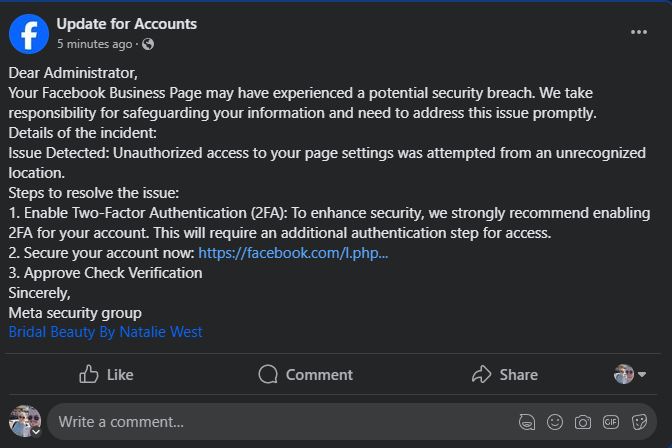Cybersecurity Essentials: How to Spot and Avoid Common Online Scams
In the digital age, online scams have become increasingly prevalent, with cybercriminals constantly finding new ways to trick unsuspecting victims. From fake bank emails to malicious remote access scams, it’s essential to stay informed and vigilant to protect yourself and your sensitive information. In this blog post, we’ll explore common online scams and provide you with essential cybersecurity tips to help you stay safe online.
Bank Scams & Website Scams: Spotting Fake Emails and Phishing Sites
One of the most common types of online scams involves fraudulent emails or text messages claiming to be from your bank. These messages often urge you to click on a link and enter your login credentials or personal information, such as your account number or PIN. To protect yourself, always verify the sender’s email address and never click on links or download attachments from suspicious emails. Remember that your bank will never ask for sensitive information via email or text message.
Scammers often create fake websites that mimic legitimate online stores or well-known brands to trick you into entering your credit card details or personal information. To avoid falling victim to these scams, always double-check the website’s URL and look for the padlock icon in your browser’s address bar, indicating a secure connection. Be wary of deals that seem too good to be true and research the company or website before making a purchase.

Protecting Your Personal Information Online Against Online Scams
Identity theft occurs when cybercriminals gain access to your personal information, such as your name, address, or social security number, and use it for fraudulent purposes. To minimize the risk of identity theft, be cautious about sharing personal information online and use strong, unique passwords for all your accounts. Regularly monitor your credit report and bank statements for any suspicious activity and consider using identity theft protection services.
Scammers may also use phone calls to trick you into revealing sensitive information or sending money. Common telephone scams include callers claiming to be from HMRC, your bank, or tech support companies. To protect yourself, never give out personal information over the phone unless you initiated the call and trust the recipient. If you’re unsure about the legitimacy of a call, hang up and contact the company directly using a verified phone number.
Some scammers may attempt to gain remote access to your computer by posing as tech support representatives or offering to help you fix a supposed problem with your device. Never grant remote access to your computer unless you have initiated the request and trust the person or company. Legitimate tech support will not contact you unsolicited and ask for remote access to your device.
Scammers also use social media platforms to spread malicious links, fake offers, and phishing attempts. Be cautious when clicking on links shared on social media, even if they appear to come from friends or family members, as their accounts may have been compromised. Adjust your privacy settings to limit the amount of personal information visible to the public and be wary of friend requests from unknown individuals.
Keeping Your Software Up to Date: The Importance of Regular Updates
One of the most effective ways to protect your devices from online scams and threats is to keep your operating system and software up to date. Software updates often include security patches that address known vulnerabilities, making it more difficult for cybercriminals to exploit them. Enable automatic updates whenever possible and regularly check for updates to ensure your devices are protected.
Investing in reputable antivirus software can help protect your devices from malware, viruses, and other online threats. Antivirus software can detect and remove malicious files and alert you to potential scams or phishing attempts. Make sure to keep your antivirus software up to date and run regular scans to ensure your devices remain protected.

Conclusion:
In today’s digital landscape, online scams pose a significant threat to both individuals and businesses. By staying informed and following essential cybersecurity practices, you can significantly reduce your risk of falling victim to these scams. Remember to be cautious when sharing personal information online, use strong and unique passwords, keep your software up to date, and invest in reliable antivirus protection. By remaining vigilant and proactive in your approach to online security, you can enjoy the benefits of the digital world while keeping your sensitive information safe and secure.
If you require assistance, we can help. If you have been scammed or potentially compromised – feel free to email us at [email protected] for further information.









